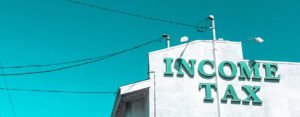
There are strategies which permit real estate investors to defer the payment of ordinary income or capital gains. One which is used with some frequency is the like-kind exchange referred to as a ‘1031 Exchange’. 3
A 1031 Exchange is not a simple real property purchase-and-sale transaction. It involves specific and unforgiving timing rules, similarity in nature of exchanged real properties, and the involvement of an independent, third-party Qualified Intermediary (QI). 4 As described by Liberty 1031 Exchange Services, LLC 4 (a QI firm the writer of this article ‘met’ through an online real estate community, and upon which he has grown to rely for updated 1031 Exchange information during the past couple of years) a common form of a 1031 Exchange called a “Forward Delayed Exchange”:
Step One: Sale of the Relinquished Property
Before the sale of the first property the Exchanger must complete the documentation prepared by Liberty 1031. At closing, the proceeds are delivered directly to Liberty 1031, as the Qualified Intermediary
[Note: The “Exchanger” is the transferor of the subject real property in a 1031 Exchange transaction.]
Step Two: Identification of the Replacement Property
The Exchanger must identify the property to be purchased (generally called the “Replacement Property”) within 45 days following the sale of the Relinquished Property. The taxpayer may generally identify three properties as a potential Replacement Property, or more under alternate rules of identification.
Step Three: Purchase of the Replacement Property
The Exchanger must obtain the Replacement Property within 180 days following the sale of the Relinquished Property, which must be identified property, subject to the rules listed above. At closing, the proceeds are paid directly by Liberty 1031, as the Qualified Intermediary, and the Exchanger receives the Deed to the Replacement Property.
There are other types of exchanges, such as reverse exchanges [and]…improvement exchanges… 5
Since the core tax deferral benefit of 1031 Exchanges (that is, not paying tax on ordinary or capital gains which otherwise would be due on a conventional ‘sale’ transaction) are dependent upon strict compliance with the applicable rules, it is important to understand – and comply with – the many technical criteria identified at the bottom of the page noted in Footnote 5 below, including:
• Investment Intent
• Time Frames
• Identification
• Like-Kind
• Common Ownership
• Property Value
• Exchange Values
• Qualified Intermediary
It must be noted that the introductory description above is wrapped with numerous additional criteria, rules, and nuances, all of which are also essential to avoid failed exchanges. 6
To consult with an experienced business law lawyer today
855-780-9986
In financial terms the failure of a 1031 Exchange by compliance with the Exchange rules can be catastrophic for an “Exchanger”. As opposed to the ability to defer the payment of tax on ordinary income or capital gains, the Exchanger will be required to pay the tax due, plus applicable interest and penalties. Simply put, these can be large numbers due ‘now’, or – as explained by Liberty 1031 Exchange – if the transfer closing of the “Relinquished Property” occurs during the last 45 days of a calendar year:
The taxpayer will then have the option of paying the taxes due in the year of the sale of the relinquished property or in the year the Section 1031 transaction failed. 7
If it cannot be readily determined from the general outline above, exceedingly careful attention must be devoted to all elements of a successful 1031 Exchange.
A 1031 Exchange is not a simple real property purchase-and-sale transaction. It involves specific and unforgiving timing rules…
Thus, a repeat…
‘Close-out’ caveat: 1031 Exchanges must be done with exacting precision or the implementing party will be subject to untoward tax consequences. As a consequence, it is crucial that real estate investors seeking to use this technique must work with experienced tax professionals, real estate attorneys, and qualified intermediaries.
1 https://quoteinvestigator.com/2012/04/13/taxes-civilize/
2 http://freakonomics.com/2011/02/17/quotes-uncovered-death-and-taxes/
3 https://www.irs.gov/businesses/small-businesses-self-employed/like-kind-exchanges-real-estate-tax-tips; see generally https://www.investopedia.com/financial-edge/0110/10-things-to-know-about-1031-exchanges.aspx
4 http://liberty1031.com/index.html; contact information at http://liberty1031.com/contactus.html. References to Liberty 1031 Exchanges material is made with their permission.
5 http://liberty1031.com/understanding1031exchanges.html. Personal property exchanges are no longer benefited by 1031 Exchanges.
6 Ibid. at https://www.investopedia.com/financial-edge/0110/10-things-to-know-about-1031-exchanges.aspx
7 https://mailchi.mp/b12926efbf45/nov-18-2019-is-a-critical-date-for-1031-exchanges-learn-why?
– For more information, call Philip N. Kabler of the Gainesville, FL office of Bogin, Munns & Munns at 352.332.7688, where he practices in the areas of business, banking, real estate, and equine law. He has taught business and real estate law courses at the University of Florida Warrington College of Business Administration and Levin College of Law and is the President-Elect of the Eighth Judicial Circuit Bar Association.
NOTICE: The article above is not intended to serve as legal advice, and you should not rely on it as such. It is offered only as general information. You should consult with a duly licensed attorney regarding your Florida legal matter, as every situation is unique. Please know that merely reading this article, subscribing to this blog, or otherwise contacting Bogin, Munns & Munns does not establish an attorney-client relationship with our firm. Should you seek legal representation from Bogin, Munns & Munns, any such representation must first be agreed to by the firm and confirmed in a written agreement.
Call or Submit Our Consultation Request Form Today





